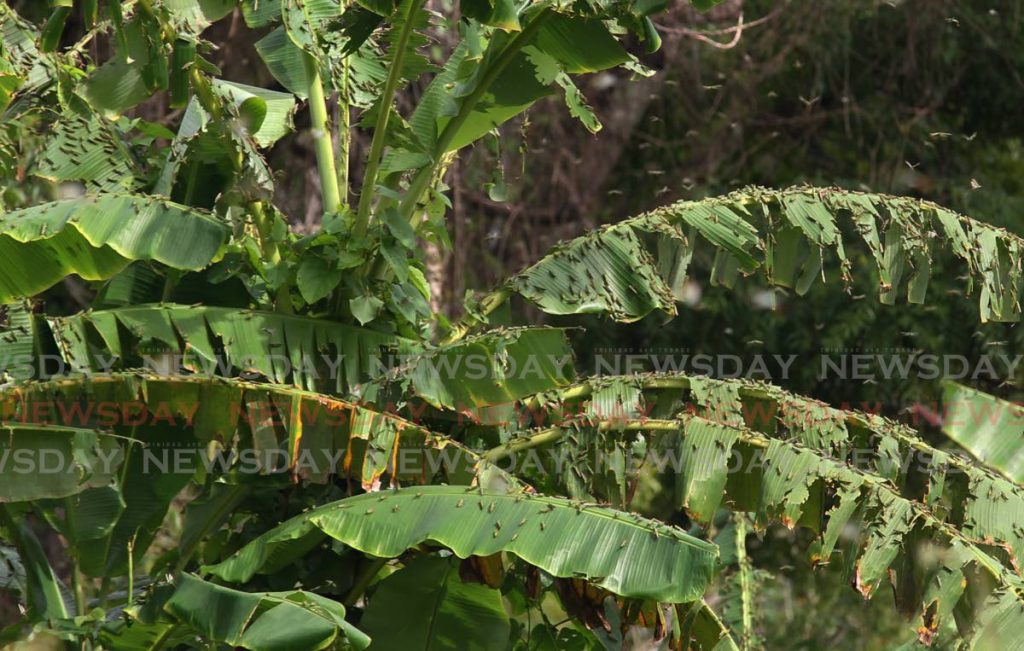Agriculture Ministry: Climate change may be causing locust invasion

THE Ministry of Agriculture, Land and Fisheries is saying that climate change may be behind the annual swarm of locusts in south Trinidad, in particular Moruga and environs, which has devastated farming communities and made life difficult for households.
This was the sentiment expressed in a press release on Sunday which incidentally is the day of the start of the COP26 global climate forum being attended by world leaders, including Trinidad and Tobago's prime minister, to discuss ways to mitigate climate change and halt global warming.
The release assured that the ministry remains vigilant in its ongoing efforts to control the Moruga grasshoppers and Moruga locusts and recognises the distress of affected residents and farmers.
Prime Minister Dr Rowley is leading a TT contingent which also includes Planning Minister Camille Robinson-Regis, Foreign and Caricom Affairs Minister Dr Amery Browne and Energy Minister Stuart young to the World Leaders Summit at the UN Climate Change Conference COP26 in Glasgow, Scotland. The conference ends on November 12.
The release said the ministry regularly advises farmers on control methods to minimise damage to crops on their holdings. Traditionally, the Moruga grasshopper has a one year life cycle and the ministry has customarily engaged in management activities at each stage of its cycle.
Over the years, the release said, the ministry has adopted a participatory approach as part of its control strategy, by engaging key stakeholders in the surveillance aspect of the pest control programme.
Stakeholders are instrumental in working with the ministry as they are required to track the flight path of the locusts and locate their eggs. The ministry then effects chemical controls on the immature grasshoppers when they emerge from the eggs.
This aspect of the control strategy is currently being implemented. Targeted spraying of immature grasshoppers is also done along the perimeter of the infested forests.
The ministry said aerial spraying is not conducted when adult locusts are in flight because of the possible negative effects on human health, wild life, beneficial insects, the environment (water courses and aquatic life) and possible contamination of sundried cocoa fields.
The ministry pointed out that locust swarms are a global phenomenon. While there are multiple species of locusts identified, countries have not been able to successfully eradicate these pests.
"Trinidad and Tobago have experienced more frequent and severe infestations in recent times. Historically, outbreaks of the Moruga grasshoppers were initially reported every 14 years, but its occurrence is now annually, with locusts having the ability to change their behaviour and migrate over long distances.
"This change may be attributed to climate change and other factors inclusive of changes in temperature as well as, torrential rain both of which provide the ideal environment for breeding," the release said.
The ministry said its officers are continuing to provide the necessary support to the national community in a collective and meaningful way.


Comments
"Agriculture Ministry: Climate change may be causing locust invasion"